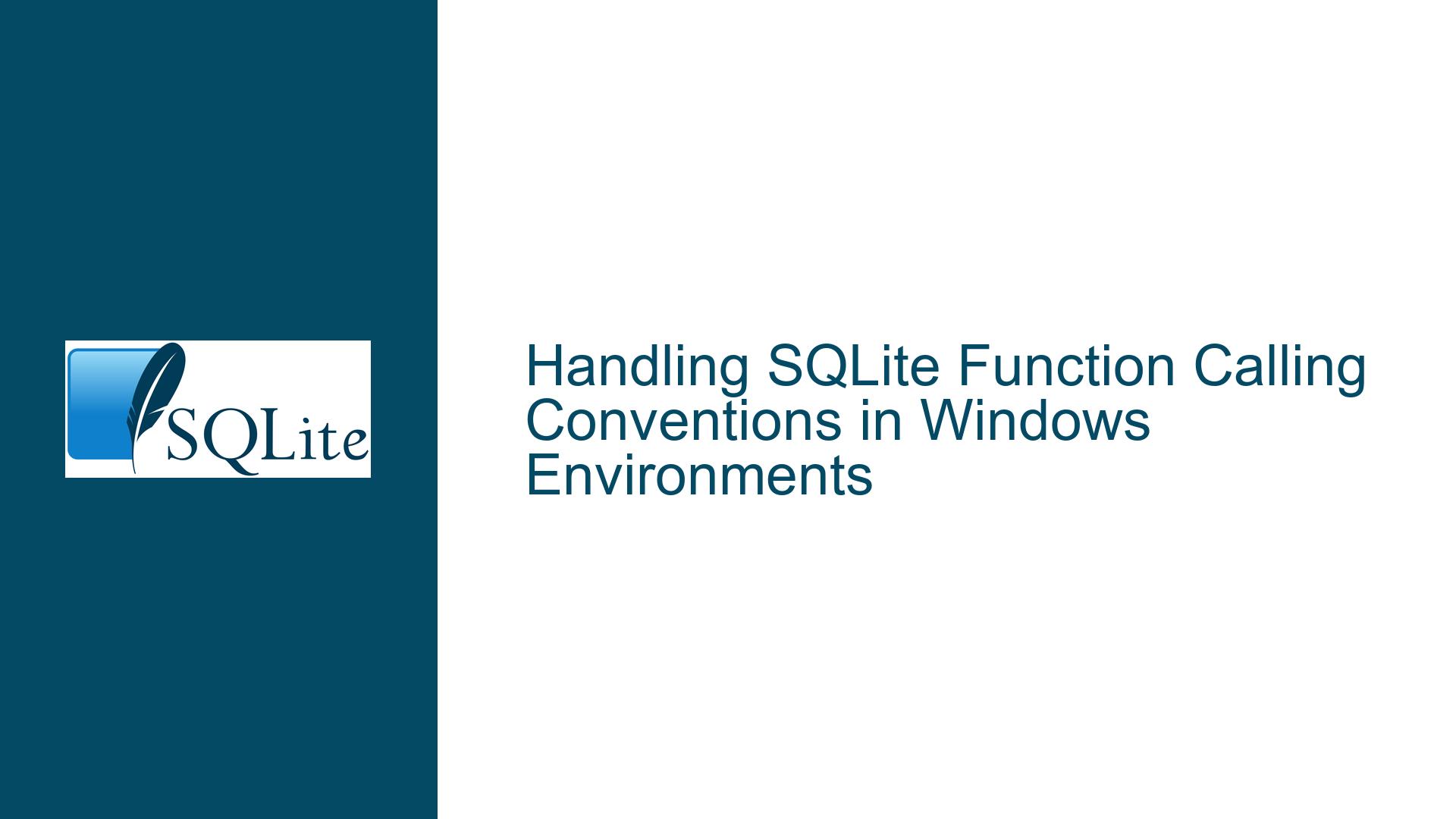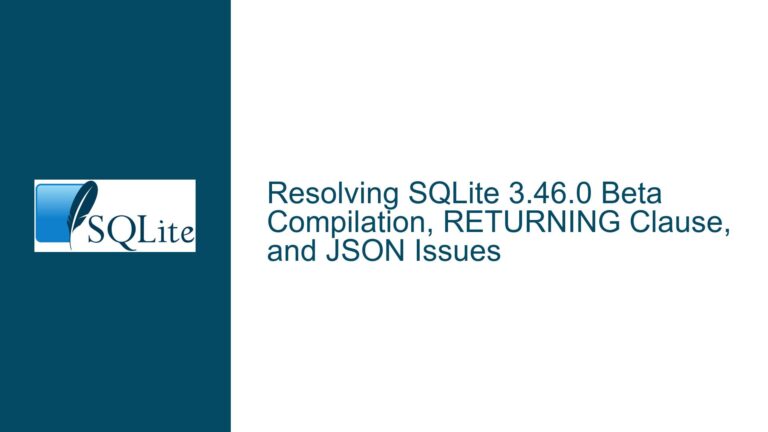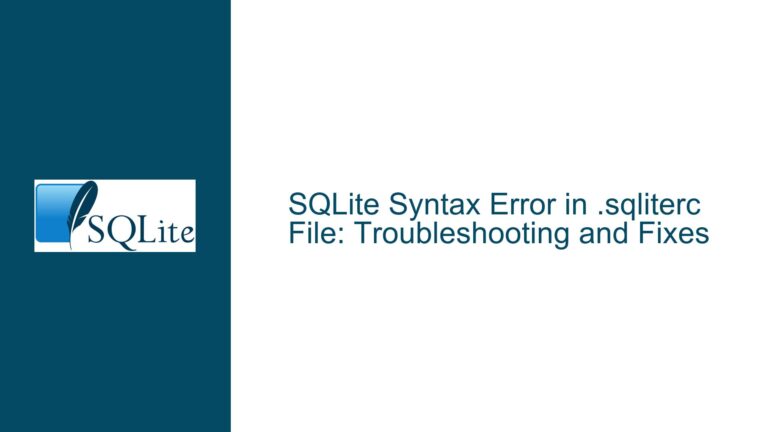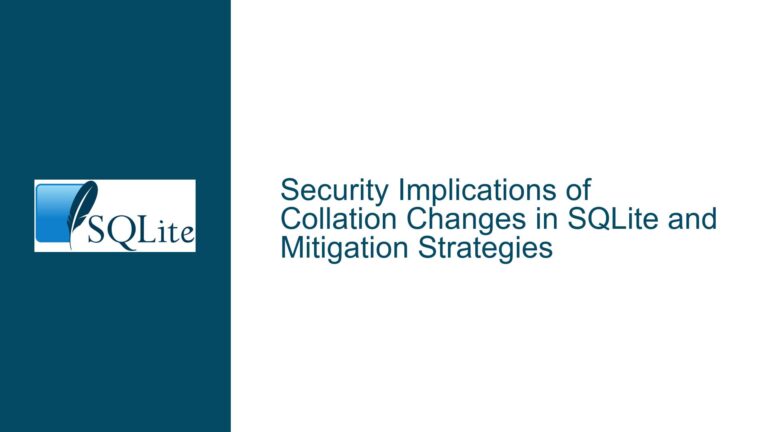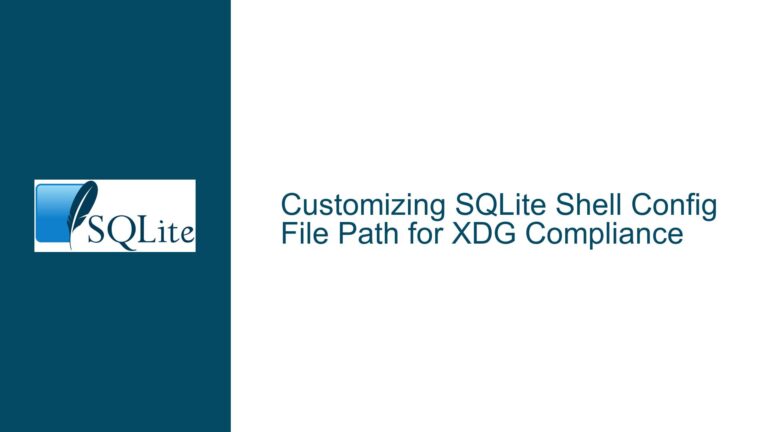Handling SQLite Function Calling Conventions in Windows Environments
SQLite Function Calling Convention Mismatch in Windows DLLs
When working with SQLite in a Windows environment, one of the challenges developers face is the mismatch between the default function calling conventions used in the precompiled SQLite DLL and the conventions required by their specific project. SQLite, by default, uses the cdecl (C declaration) calling convention, which is typical for C-based libraries. However, many Windows-based projects, especially those involving legacy systems or specific corporate standards, may require the use of the stdcall calling convention. This discrepancy can lead to linking errors and compatibility issues when attempting to integrate SQLite into such projects.
The cdecl calling convention is characterized by the caller being responsible for cleaning up the stack, allowing for variable argument lists, and generally being more flexible. On the other hand, stdcall places the responsibility of stack cleanup on the callee, which can lead to more efficient stack usage but restricts the ability to use variable argument lists. This fundamental difference in how function calls are managed at the binary level is what causes the incompatibility when trying to link against a SQLite DLL that uses a different calling convention than the one expected by the project.
The issue becomes particularly pronounced when developers attempt to use precompiled SQLite binaries, as these are typically compiled with cdecl as the default calling convention. This can be problematic in environments where stdcall is the mandated or preferred convention, leading to a situation where the precompiled DLL cannot be directly linked against without encountering errors. The challenge is further compounded by the fact that the SQLite header file (sqlite3.h) does not explicitly specify the calling convention for its public functions, making it difficult to override the default behavior without modifying the source code.
Precompiled DLLs and Default Calling Convention Conflicts
The core of the issue lies in the way SQLite is distributed and compiled. The precompiled binaries available on the SQLite website are compiled with the cdecl calling convention as the default. This is a reasonable choice for a cross-platform library like SQLite, as cdecl is widely supported and aligns with the conventions used in most C-based environments. However, this choice can create conflicts in Windows environments where stdcall is often the default or required calling convention, especially in projects that interface with Windows API functions or other libraries that adhere to the stdcall convention.
The problem is exacerbated by the fact that the SQLite header file (sqlite3.h) does not explicitly specify the calling convention for its public functions. While the header file does provide a set of macros that could theoretically be used to override the calling convention (SQLITE_CDECL, SQLITE_STDCALL, etc.), these macros are not actually utilized in the function declarations within the header. This means that even if a developer attempts to define these macros to specify a different calling convention, the changes will not propagate to the function declarations, leaving the default cdecl convention in place.
This oversight can lead to confusion, as developers might assume that the presence of these macros in the header file implies that they can easily switch between calling conventions by simply defining the appropriate macro. However, without the macros being actively used in the function declarations, this approach will not yield the desired results. As a result, developers are left with two primary options: either modify the SQLite source code to explicitly specify the desired calling convention, or use an alternative precompiled DLL that already adheres to the required convention.
Compiling SQLite with STDCALL and Using System32 DLLs
For developers who need to use the stdcall calling convention with SQLite, there are two main approaches to resolving the issue. The first approach involves compiling the SQLite library from source with the stdcall convention explicitly specified. This can be achieved by using the provided Makefile.msc and setting the USE_STDCALL flag during the build process. The command to do this would look something like:
nmake /f Makefile.msc USE_STDCALL=1 sqlite3.dll
This command instructs the build system to compile the SQLite DLL with the stdcall calling convention, ensuring that the resulting binary is compatible with projects that require this convention. While this approach provides a high degree of control over the build process, it does require that developers have access to the necessary build tools and are comfortable with modifying and compiling the SQLite source code.
The second approach, which is often simpler and more straightforward, involves using the precompiled SQLite DLL that is included with Windows. This DLL, located in the C:\Windows\System32 directory and named winsqlite3.dll, is already compiled with the stdcall calling convention. This makes it an ideal choice for developers who need to quickly integrate SQLite into a project that requires stdcall without having to go through the process of compiling the library from source.
Using the winsqlite3.dll from the System32 directory has the added advantage of being a well-tested and stable binary, as it is distributed as part of the Windows operating system. However, it is important to note that the version of SQLite included in the System32 directory may not always be the most up-to-date. Developers who require the latest features or bug fixes from SQLite may still need to compile the library from source or seek out alternative precompiled binaries that match their requirements.
In conclusion, the issue of function calling convention mismatches in SQLite can be a significant hurdle for developers working in Windows environments. However, by understanding the underlying causes of the issue and exploring the available solutions—such as compiling SQLite with the stdcall convention or using the precompiled winsqlite3.dll from the System32 directory—developers can effectively resolve these conflicts and successfully integrate SQLite into their projects.
